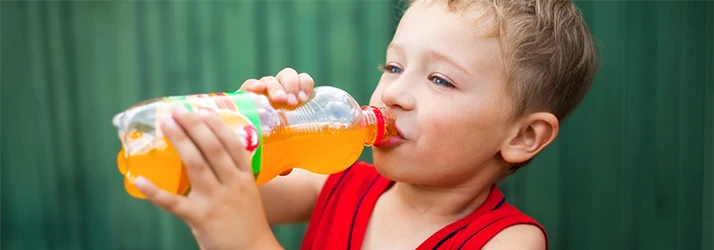How Acidity Causes Cavities—Even in Kids with Great Oral Habits

At Campbell Pediatric Dentistry in Campbell CA and Los Gatos CA, we often hear from frustrated parents who do everything “right”—twice-daily brushing, regular flossing, nutritious meals—yet their children still get cavities. Sound familiar? The truth is, acidity may be the silent culprit damaging your child’s smile behind the scenes.
The Surprising Link Between Acidity and Cavities
You may assume that sugar is the main villain behind tooth decay, but acidity plays an equally destructive role. Each time your child eats or drinks—even healthy snacks—the pH in their mouth drops. Once it falls below 5.5, enamel begins to weaken, leaving teeth vulnerable to decay. Add in bacteria that thrive on carbohydrates, and it’s a recipe for cavities, no matter how well your child brushes.
Tooth Decay Isn’t Always About Hygiene
Here’s something many people don’t realize: some kids are genetically more prone to cavities. With over 10,000 genes influencing tooth development, there are biological factors at play that can’t be changed. But what can be changed? Diet, pH exposure, and daily habits. That’s where you, as a parent, can make a powerful difference.
What Foods Are Too Acidic?
Knowing which foods contribute to oral acidity can help you make smarter snack choices. Here’s a quick guide to common foods and drinks, sorted by acidity level:
High-Acidity Items:
- Citrus fruits (oranges, grapefruit)
- Cherries, plums, and mangoes
- Applesauce
- Pickles
- Iced tea, soda, sports drinks
- Some bottled waters
Medium-Acidity Foods:
- Apples
- Pears
- Apricots
- Pesto
Low-Acidity (Tooth-Friendly) Choices:
- Cheese
- Avocados
- Cucumbers
- Bananas
- Whole wheat bread
- Probiotic yogurt
Instead of grazing throughout the day, encourage your child to enjoy acidic foods during meals when saliva flow is highest—and always pair snacks with water to rinse acids away.
Everyday Tips to Fight Acid Erosion
Want to protect your child’s enamel? These simple strategies can help:
- Limit grazing — Constant snacking keeps the mouth acidic.
- Hydrate wisely — Water is your best defense against lingering acids.
- Swap smart — Replace acidic or sticky snacks with cheese, veggies, or nuts.
- Use fluoride products — Fluoride toothpaste and mouth rinses strengthen enamel.
- Avoid sour, sticky treats — These cling to enamel and increase cavity risk.
Acidic vs. Acid-Forming: What's the Difference?
Here’s where it gets a little tricky—some foods are acidic in your mouth but not in your bloodstream, and vice versa. For cavity prevention, we care most about how foods behave during and shortly after you eat them, not hours later during digestion. That’s why the focus should be on how long those acids stay in contact with your child’s teeth.
Ready to Take Control of Your Child’s Oral Health?
Understanding how acidity affects your child’s teeth is the first step toward preventing decay. At Campbell Pediatric Dentistry in Campbell CA and Los Gatos CA, we’re here to help you navigate these challenges with personalized care and guidance. Whether you're looking to reduce your child’s cavity risk or need expert advice on dental-friendly snacks, our team is ready to support you every step of the way.
Campbell Pediatric Dentistry
476 E Campbell Ave Suite A
Campbell, CA 95008
Los Gatos Kids Dentistry
15595 Los Gatos Blvd Suite C
Los Gatos, CA 95032



